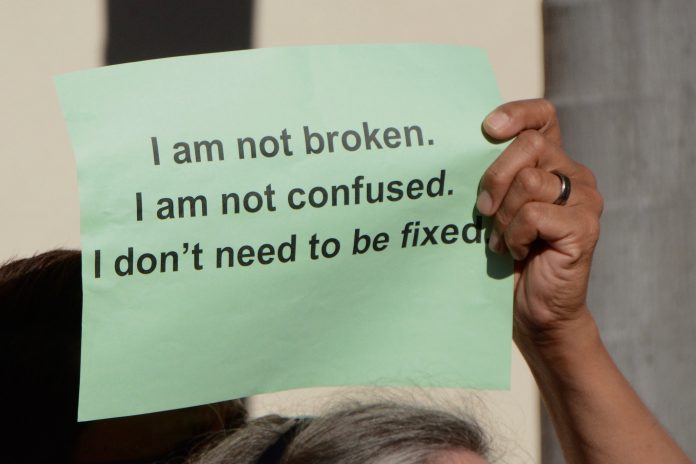The UK government have partially banned conversion therapy for gay and bisexual individuals, while transgender conversion therapy is still legal
Conversion therapy, the practice of persuasive techniques designed to prejudice people’s choices about gender change or sexual orientation, is currently still legal in the UK.
What is conversion therapy?
This happens in many ways, through healthcare or religious and cultural interventions, targeting both children and adults. Conversion therapy can be as innocuous as an informal invitation to talk, or speaking with a therapist who falsely uses religion as a crutch for homophobia.
In earlier decades, conversion therapy focused on attempts to change people from being LGBT. Now, talking conversion therapies can mean describing same-sex attraction and being transgender to a defect, deficiency or addiction.
The UK government made a U-turn on the conversion therapy ban
The UK government, in December, 2021, promised to ban conversion therapy via new legislation.
On 1 April, 2022, political leaders changed their mind and decided to drop the conversion therapy ban with existing legislation. Just hours after this decision, there was a significant backlash from LGBT Conservatives and organisations across the UK.
On the same day, the government agreed to impose a partial conversion therapy ban, only for lesbian, gay and bisexual individuals. Transgender conversion therapy would remain legal under the new proposal.
Rainbow Migration, an organisation that works with LGBT migrants to the UK, said: “Many of our trans service users have fled violence in their countries of origin and we believe they should be treated with kindness and compassion by the UK, not fear that their rights to be themselves may be denied.”
The 2021 government proposal for a conversion therapy ban said that both sexual orientation and gender identity would be protected by future legislative changes, describing the intervention as “symmetrical and universal, protecting everyone.”
The initial proposal said: “An attempt to change a person’s sexual orientation or to change them from being transgender will be treated in the same way as the opposite and reverse scenario.”
13% of transgender people have been through conversion therapy
In the wake of anti-trans campaigning by some women’s groups, transgender healthcare rights are up for debate across the UK. There is a stigma around implementing human rights for transgender people, as some believe that rights are a zero-sum game – with the acquisition of rights to one group denoting a lack of protection for another.
According to Ban Conversion Therapy, 13% of transgender people have been offered or been through conversion therapy, while 7% of LGBT people as a whole have had the same experiences.
The LGBT Organisation, Stonewall, said: “We recognise that in response to outrage from the LGBTQ+ community and our allies, the Prime Minister’s position has shifted. He now proposes a partial ban, one that protects lesbian, gay and bi cis people, but leaves trans people, including trans children, at continued risk of abuse.”
The Welsh government have called the move “unacceptable”. They will explore legal options to outlaw transgender conversion therapy.
As a result of the partial conversion therapy ban, over 80 LGBT organisations are now boycotting the UK government’s Safe to Be Me global LGBT conference.











